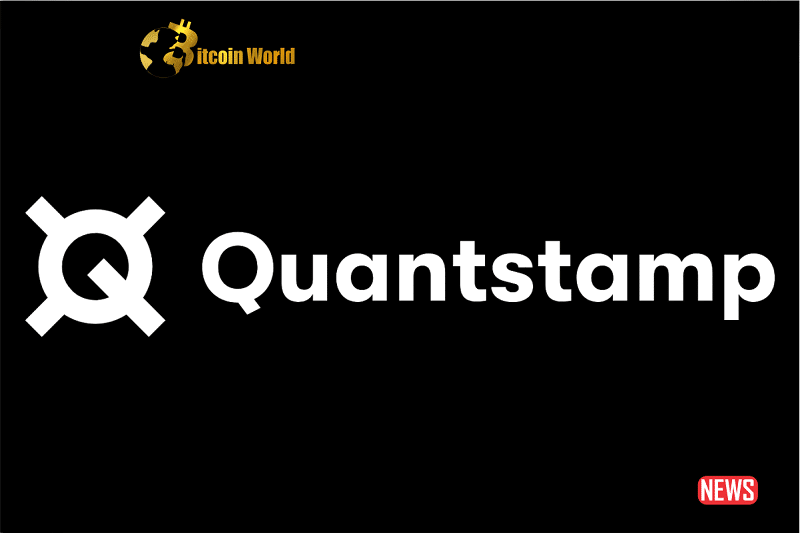Ever wondered what happens when a promising crypto project runs into regulatory roadblocks? Well, the recent settlement between blockchain security firm Quantstamp and the U.S. Securities and Exchange Commission (SEC) offers a stark example. Let’s break down what went down with their 2017 Initial Coin Offering (ICO) and what it means for the wider crypto world.
The Backstory: A Promising ICO
Back in the crypto boom of 2017, San Francisco-based Quantstamp launched an ICO for its “QSP” tokens. The idea was to raise funds to develop an innovative platform for automatically auditing smart contract security. Sounds pretty useful, right? And it was – the ICO successfully raised over $28 million from around 5,000 investors, including those right here in the United States.
Quantstamp had big plans for those funds, aiming to build and market their cutting-edge security auditing platform. They even claimed an exemption from registration under SEC rules (specifically Rule 506(c) of Regulation D and Regulation S through a Form D filing). But, as we’ll see, things didn’t quite go as planned.
The SEC Steps In: Unregistered Securities
Fast forward to the present, and the SEC has concluded that Quantstamp’s offer and sale of QSP tokens were, in fact, unregistered securities. This means they didn’t follow the proper procedures for offering investment contracts to the public. Despite their previous claims of exemption, the SEC didn’t agree.
The SEC’s complaint highlighted that Quantstamp emphasized the significant potential of their smart contract security platform. This led investors to believe that the value of their QSP tokens would increase as the company succeeded. Furthermore, Quantstamp made the tokens available for trading on various third-party crypto exchanges soon after the ICO. These factors contributed to the SEC’s classification of the QSP tokens as securities.
The Price of Non-Compliance: A Multi-Million Dollar Settlement
So, what’s the cost of an unauthorized ICO? For Quantstamp, it’s a hefty settlement totaling millions of dollars. Here’s a breakdown:
- Disgorgement: $1,979,201 – This is essentially returning the ill-gotten gains.
- Prejudgment Interest: $494,314 – Interest accrued on the disgorgement amount.
- Civil Penalty: $1,000,000 – A direct penalty for violating securities laws.
That adds up to a significant $3,473,515! It’s a clear reminder that navigating the regulatory landscape is crucial for any project involving digital assets.
What Happens to the Money? The Fair Fund
Here’s some good news for those who invested in the QSP ICO. The SEC is establishing a “Fair Fund” to return the money paid by Quantstamp to the “injured investors.” This means if you participated in the 2017 ICO, you might be eligible for a refund.
Important Considerations about the Fair Fund:
- The amount returned might be less than your initial investment. Factors like the costs of administering the fund, the number of eligible investors, and the total available funds will play a role.
- Quantstamp also has to transfer any remaining QSP tokens under their control to the Fair Fund administrator. These tokens will then be permanently disabled or destroyed.
What’s Next for Quantstamp?
This settlement undoubtedly has significant implications for Quantstamp’s future. They are now required to:
- Publish notice of the SEC’s order on their website, ensuring transparency.
- Inform crypto trading platforms that currently list QSP for trading about the SEC’s findings.
Moving forward, Quantstamp will need to carefully address the concerns raised by the SEC and ensure full compliance with all relevant regulatory requirements. This experience serves as a valuable lesson for them and other companies operating in the crypto space.
Key Takeaways for the Crypto Community
The Quantstamp settlement offers several important lessons for anyone involved in the cryptocurrency world:
- Regulatory Scrutiny is Real: The SEC is actively monitoring the crypto space and is willing to take action against projects that don’t comply with securities laws.
- ICOs Require Careful Planning: Launching an ICO is not a simple process. Understanding and adhering to regulations is paramount.
- Investor Protection is Key: The SEC’s actions highlight their commitment to protecting investors from unregistered securities offerings.
- Compliance Matters: Ignoring regulations can lead to significant financial penalties and reputational damage.
Looking Ahead: A More Regulated Crypto Landscape?
The Quantstamp case is just one example of the increasing regulatory attention being paid to the cryptocurrency industry. As the market matures, we can expect to see more clarity and enforcement of existing regulations. For projects looking to raise capital through token sales, seeking legal counsel and ensuring compliance from the outset is no longer optional – it’s essential.
Ultimately, while the Quantstamp settlement represents a setback for the company, it also serves as a valuable learning experience for the entire crypto ecosystem. Navigating the regulatory landscape can be complex, but doing so is crucial for the long-term growth and sustainability of the industry.
Disclaimer: The information provided is not trading advice, Bitcoinworld.co.in holds no liability for any investments made based on the information provided on this page. We strongly recommend independent research and/or consultation with a qualified professional before making any investment decisions.




